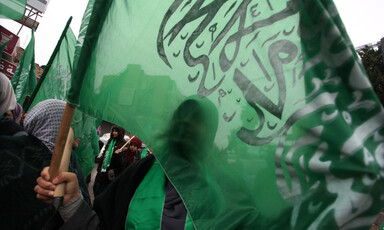
Will Hamas squander its Gaza victory?
Beirut 30 November 2012
Khaled Meshaal’s U-turns make him sound like a broken record of Mahmoud Abbas. Read more about Will Hamas squander its Gaza victory?

Beirut 30 November 2012
Khaled Meshaal’s U-turns make him sound like a broken record of Mahmoud Abbas. Read more about Will Hamas squander its Gaza victory?
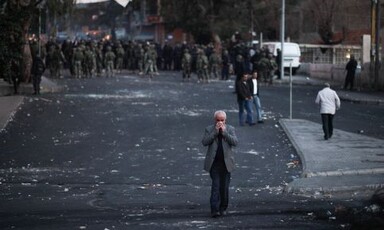
11 February 2011
While all eyes are on the people’s revolts in Tunisia and Egypt, ongoing efforts to form a new government in Lebanon have garnered little media attention. But the collapse of the Hariri government in Lebanon was another major blow to US interests and the standing of its long-time Israeli and “moderate” Arab allies. Read more about Meet the Lebanese Press: the end of Hariri or of Harirism?

18 August 2010
Border clashes between Lebanon and Israel earlier this month, and Hizballah leader Hasan Nasrallah’s presentation of evidence that Israel may have assassinated Lebanese Prime Minister Rafiq Hariri in 2005. are much more than a routine tug-of-war between two long-time foes. Hicham Safieddine analyzes for The Electronic Intifada. Read more about Israel's multi-front war on Lebanese resistance

6 July 2010
In his latest book, Canada and Israel: Building Apartheid, Yves Engler contends that Canada’s lopsided support for Israel is neither a shift nor the product of current government policy but goes as far back as Zionism itself. Hicham Safieddine reviews for The Electronic Intifada. Read more about Book review: pocket-sized volume deflates Canada's "peacemaker" myth

12 December 2009
Alastair Crooke’s new book Resistance: The Essence of the Islamist Revolution studies the philosophy of resistance among Islamic movements as articulated by influential Islamist thinkers and revolutionaries of the last century. However, by defining an essence of Islam, Crooke reinforces many of the assumptions he is trying to dispel. Hicham Safieddine reviews for The Electronic Intifada. Read more about Book review: Alastair Crooke's "Resistance: The Essence of the Islamist Revolution"
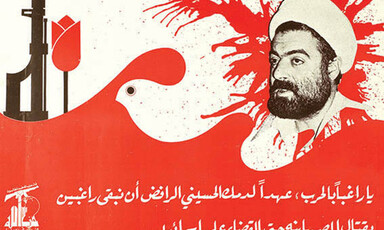
6 July 2009
The power of posters, as not merely symbolic weapons but also sites of hegemonic struggle during Lebanon’s civil war, is a central theme of Zeina Maasri’s new book Off the Wall: Political Posters of the Lebanese Civil War. A mix of text and image, the book is a rich and visually engaging work that tackles a dimension of war long-neglected by Lebanese historians. Hicham Safieddine reviews for The Electronic Intifada. Read more about Book review: Lebanon's political posters as sites of struggle
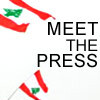
29 December 2008
Like much of the world press, Israel’s war on Gaza dominates the headlines in Lebanon. Massive protests in Beirut, particularly at the Egyptian embassy, took place. In an address to the tens of thousands of demonstrators, Hizballah Secretary General Hassan Nasrallah called, among other things, for ordinary Egyptians to open up the crossing at the Egypt-Gaza border by force and in defiance of government security forces. Nasrallah’s explicit condemnation of the Egyptian regime and the stern response by Egyptian Foreign Minister Ahmed Aboul Gheit reflects the long-term impact of the Gaza war on the dynamics of regional alliances playing out in Lebanon. Read more about Meet the Lebanese Press: Gazing towards Gaza
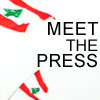
17 November 2008
Civil strife usually ends when there is truth and reconciliation. In Lebanon, it subsides when a truce poses as reconciliation. Top Lebanese leaders are doting over each other, calling for a new pact of political rivalry that is confined to the arena of democratic and peaceful confrontation. Meetings between top March 14 and March 8 officials have calmed fears of further clashes on the streets. With the notable exception of Christian leaders, all sectarian heads are trying to unite their ranks in the run up to next year’s parliamentary elections. Meet the Lebanese Press is The Electronic Intifada’s regular review of what is making the rounds in the Lebanese press and the pundits’ take on it. Read more about Meet the Lebanese Press: Strategic defense or strategic shift?

3 November 2008
People around the world, including those in the Middle East, may have paid little attention to Canada’s parliamentary elections on 14 October. The Canadian election brought little change to the makeup of parliament. The Conservatives maintained their lead and formed a minority government while the Liberals lost more seats. But preserving the status quo and the virtual absence of foreign policy as a topic of public debate in the run up to the vote reinforces the transformation in Canada’s geopolitical role in relation to the Middle East. And this must be of extra concern today. Hicham Safieddine comments. Read more about The United States of ... Canada

2 September 2008
Lebanese-Syrian relations witnessed a turnaround this month. The visit by Lebanese President Michel Suleiman to Damascus culminated in a declaration to establish full diplomatic relations between the two countries for the first time. Promises were made to intensify efforts to resolve long-standing disputes around delineating the borders and uncovering the fate of dozens of Lebanese who disappeared during the civil war and are believed to be imprisoned in Syria. Read more about Meet the Lebanese Press: Syria and the Salafis